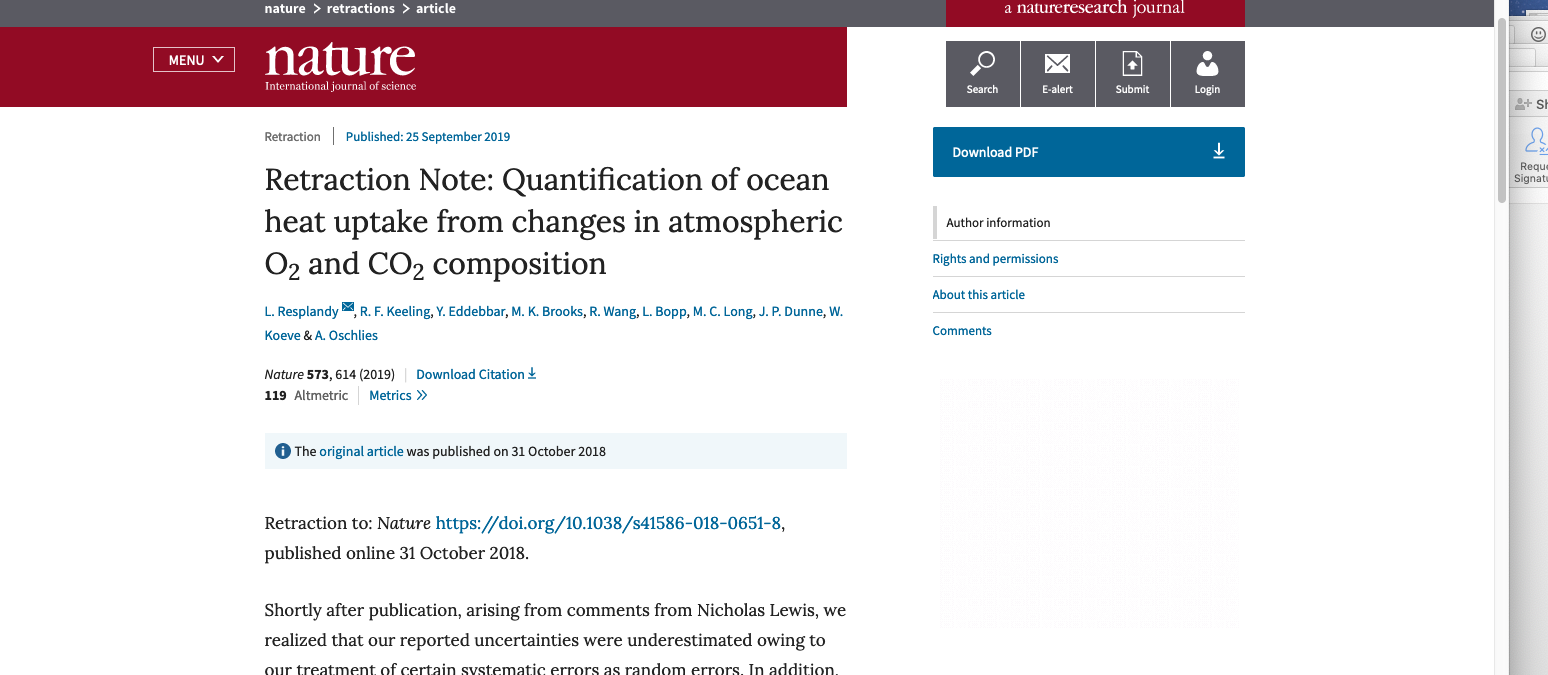U.K. mathematician noticed errors on the first page of the peer-reviewed article.
Authors of an article in Nature, a premier scientific publication, have just retracted their article, published in October 2018, It argued that the ocean was absorbing sixty percent more heat than previously thought. That finding suggested that global warming is much more severe than predicted by prominent scientists.
The article was widely publicized by such media as the New York Times, the Washington Post, the BBC, and others.
“Startling new research finds large buildup of heat in the oceans, suggesting a faster rate of global warming,” was the Post’s headline. “The findings mean the world might have less time to curb carbon emissions.”
Within days, however, the Post and the Times modified their stories; the Times even changed the headline to a more tepid “Scientists Find a New Way to Take the Oceans’ Temperature.” The Post published a new story that explained why.
A U.K- based mathematician, Nicholas Lewis, had raised questions about the calculations in the paper. The authors quickly acknowledged the error and issued a correction but did not retract the paper. However, nearly a year later the journal told the authors to retract it.
The authors’ retraction note appears on the Nature website and reads, in part:
Shortly after publication, arising from comments from Nicholas Lewis, we realized that our reported uncertainties were underestimated owing to our treatment of certain systematic errors as random errors. In addition, we became aware of several smaller issues in our analysis of uncertainty. Although correcting these issues did not substantially change the central estimate of ocean warming, it led to a roughly fourfold increase in uncertainties, significantly weakening implications for an upward revision of ocean warming and climate sensitivity. Because of these weaker implications, the Nature editors asked for a Retraction, which we accept.
Benny Peiser, director of the Global Warming Policy Forum, wrote on September 25.
Climatology is littered with examples of bad statistics, going back to the infamous Hockey Stick graph and beyond. Peer review is failing and it is falling to amateurs to find the errors. Scientists in the field should be embarrassed.

